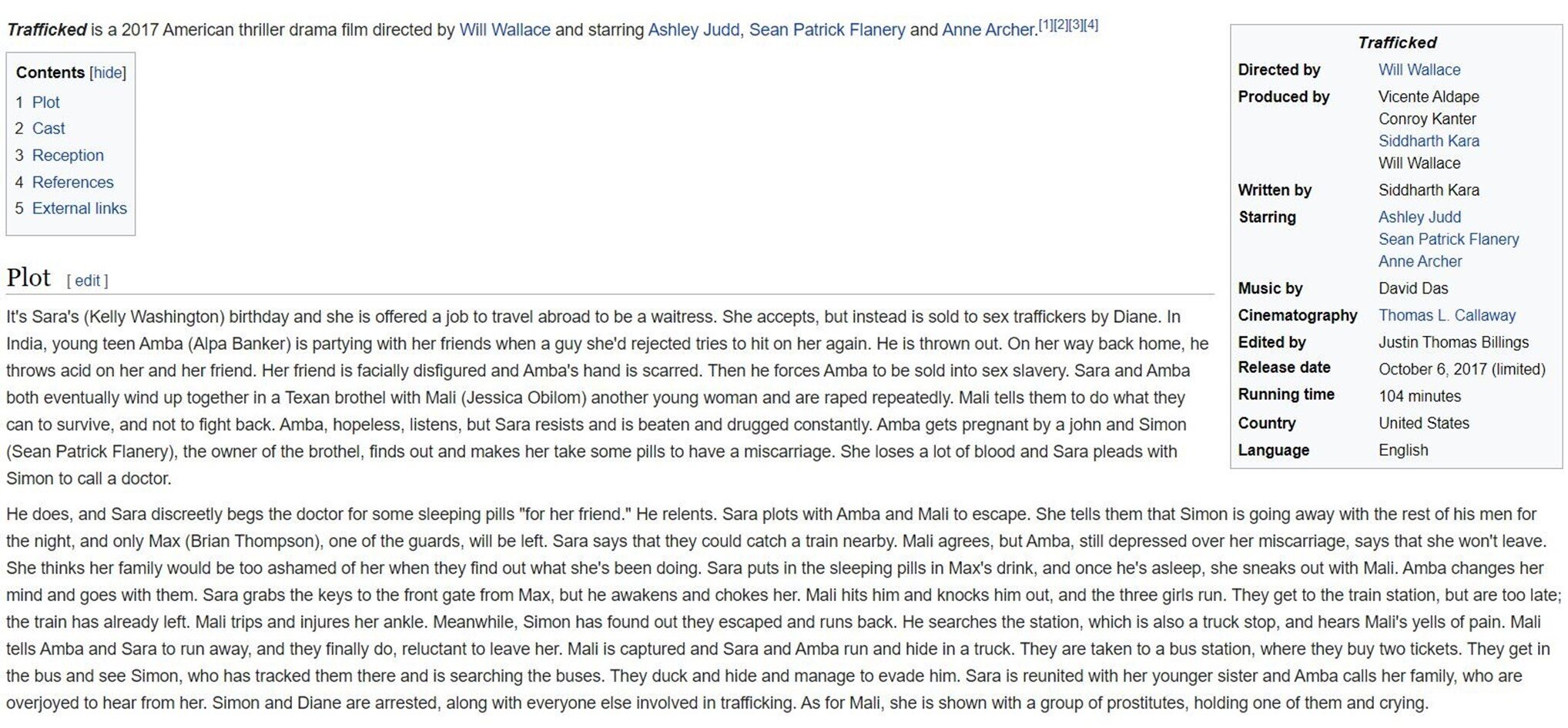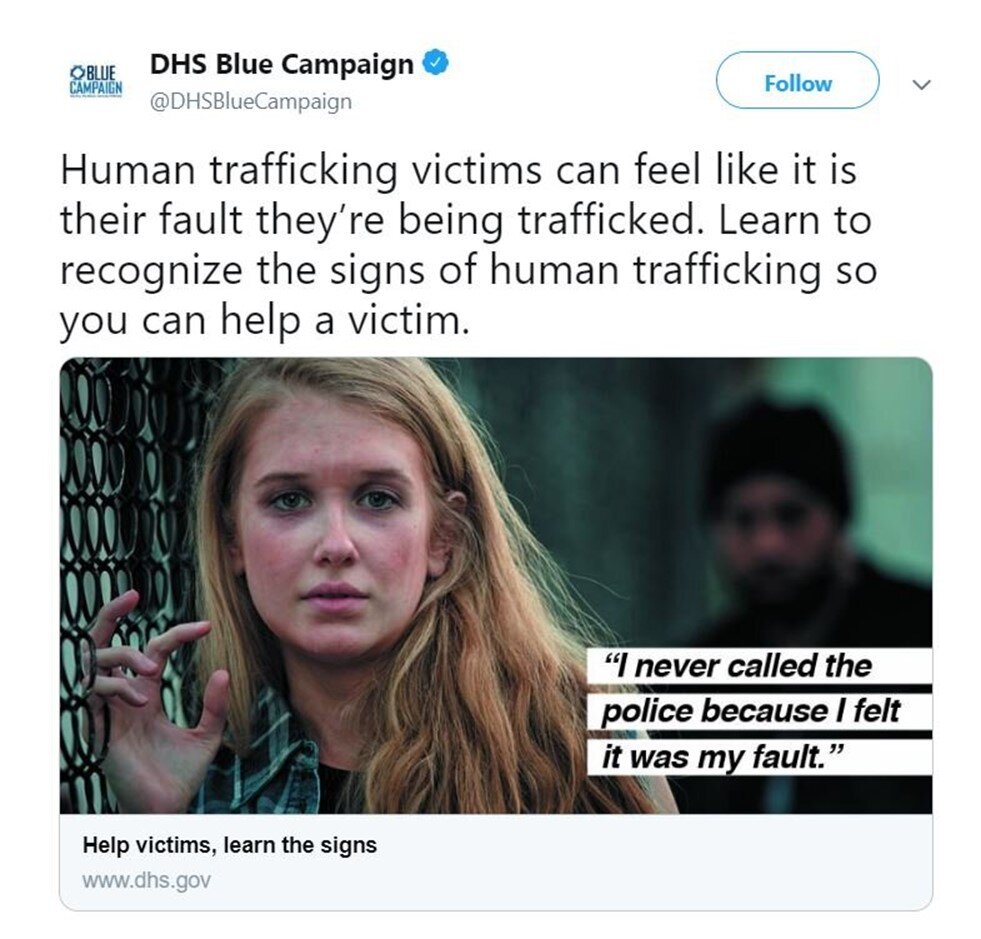Anti-Trafficking Films Then and Now
Published December 26, 1913 in the New York Times on "The Inside of the White Slave Traffic" Film
The prevailing idea behind these narratives is that women caught in "slavery" had made a mistake, or stepped out of her proper role. Despite her "trafficking" and "slavery" she was still considered a "bad poor" in need of redemption, punishment, and rehabilitation. However, in most films "whores" or sex workers/slaves can only be redeemed except through death. They die in both films.
The Inside of the White Slave Traffic claimed to have been written and produced by Samuel H. London a sociologist who had worked for Rockefeller’s Bureau of Social Hygiene and who claimed to have been a former U.S. Government Investigator. He lied.
Traffic in Souls was marketed as being based on official government reports on human trafficking and they went so far as to fake an endorsement from John D. Rockefeller Jr. He not only hated it, publicly denounced it, but he claimed he had never endorsed it in the first place. He also lied.
These narratives about "slavery" actually held all women back from gaining rights. And for many it was a warning for women to behave, stay home, and not try to gain independence by getting a job, moving to the urban areas where bad people (ahem new immigrants) might be. Even today, human trafficking films are often used to warm women to behave themselves to avoid being kidnapped and enslaved.
*If you're wondering why Rockefeller Jr's name keeps popping up, it's because he created a lot of policy, institutions, and narratives around sex slavery, and other anti-vice, social purity causes.
If you ever encounter SWERFs telling you that depicting sex work in a way that's not stigmatizing is bourgeois, privileged, or serving the wealthy... yeah no. Completely ahistorical, and zero understanding that our country is ruled by WASPs. Even today the top anti-human trafficking (anti-sex work) organization in the country is IJM (International Justice Mission), the CEO is Gary Haugen. A WASP who requires all employees to be Christian, and works with IMF while doing prostitution stings globally. Gary Haugen has often said that poverty isn't caused by a lack of resources, or money, but a lack of "law and order".
Back in the day, Human Trafficking films were controversial. They were basically selling rape, garbage fiction, abuse, torture, and the enslavement of women to the public. It wasn't seen as a "moral" thing to do. These films/documentaries always sell themselves as "exposing the truth" and being 110% honest and they almost never are. What they are is profitable. They pushed the envelope on showing unacceptable things for the era on a simple justification: basically we need to show you every single horrible and salacious detail to make you "aware", and being "aware" makes you (the viewer) a good person, a good consumer, unlike those who choose not to watch women be tortured to learn "facts" and "harsh reality".
With messages like "Don't look away!", "We often turn a blind eye to trafficking/slavery/third world/exploitation/insert various issues", etc.
Unlike other films that brand themselves as entertainment and fiction, human trafficking films sell themselves as a kind of for profit public service announcement. They have and still do lie to market the films, and make themselves seem more objective than they really are. It doesn't occur to many consumers, that in order for privileged people to tell these narratives with objectified tragic literacy characters (that are supposed to represent a mass number of marginalized people) someone must have been silenced. Some consumers imagine that people are so oppressed, enslaved, or marginalized that they *can't* speak for themselves. This quickly goes into "speaking for the voiceless" justifications. The reality is that it's violent erasure, and there's no such thing as "speaking for the voiceless". It becomes a kind of white man's burden or white saviorism.
Often people in first world countries will create social commentary about how "woke" they are because they consume narratives and images of human misery, as opposed to other people consuming for vanity, or mass produced junk. What they don't realize is that they are one in the same, they are both simply consuming, engaging in voyeurism of mass produced things. It can actually create isolation and a strong disconnection from reality. Many people watch films about "the underground" especially about trafficking convinced they are super aware and knowledgeable about really complex issues. Their repetitive unquestioning consumption of these narratives simply confirms to them that they are correct.
Consider this, many people will go into great detail about how American media does not understand poverty. But will somehow believe that the media portrays "underground"/informal markets like the sex industry accurately. To demonstrate this using old film, below is a clip from "Inside the White Slave Traffic", it translates slang from the day as "code used by traffickers". They still do this. You can find links for them here and here. Most of these anti-sex work institutions are missionary groups. They define things like "daddy", "bottom", "wifey", and they define tattoos as "slave branding". They call this "trafficking terms, and various anti-trafficking orgs have lessons on how to translate and understand the way common people talk.
What's really happening is that privileged people are going into marginalized communities, often with police escorts to extract narratives with recurring themes about poor and criminalized people. Sometimes they try earning the trust of the people they plan to exploit for accolades, and to "expose exciting new bad things about poor people's survival".
Start to think critically about what's being presented to you. Look at these anti-trafficking campaigns as well funded, planned out, and police approved advertising. Because it's what they are. At their core they justify state violence as heroic and necessary. Like most violence of a white supremacist state, they are justified to defend the sexual purity of a usually beautiful pure untouched white girl. It's always been a classiest, racist, xenophobic and sexist narrative. Why do you think slavery/human trafficking is now advertised as something that can happen "to anyone"? Why do you think it's now a raceless, and a classless thing? And yet depictions of sexual slavery very clearly show a pattern. The state, police and society very clearly do not care about labor exploitation. The main focus is on the drug trade, immigration, and the sex industry. Why? When you see human trafficking narratives, ask yourself what areas are they targeting, what kinds of demographics tend to gather there, what class, race of people are they targeting for punishment? Who are they painting as "bad", who gets to be "innocent" and "good"? Are they really addressing our systematic issues, or are they blaming a shadowy figure who exists outside of the state and capital as scapegoat for systematic failure? If you can start to understand that the police, ICE, non profits, surveillance companies, and corporations are involved and funding these campaigns, can you begin to guess where their victims end up?




























